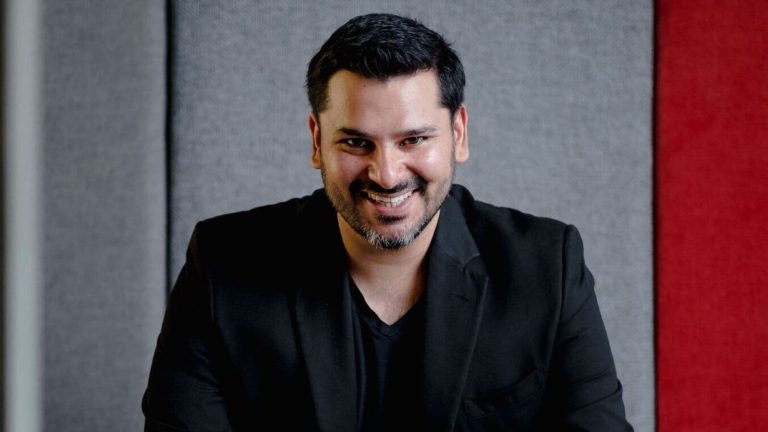The company is increasing its offerings to incorporate GLP-1 drugs such as Ozempic and Mounjaro – used to treat type 2 diabetes and, in some cases, obesity – and expects revenue from its GLP-1 companion programmes to exceed Healthify’s main revenue in three to four years, Tushar Vashisht, co-founder and CEO, told Mint in an interview.
The healthtech firm, which started out as a calorie and nutrition-tracking app, expects demand for weight-loss drugs to surge in India.
“Adoption of the drugs will happen very rapidly as prices come down. What we are hopeful to do is to pioneer the companion solution,” said Vashisht, acknowledging that immediate adoption may be slow. “Eventually, I see a world where every hospital will have a medical weight-loss programme, but one thing common is that everybody will need lifestyle support.”
The company has rolled out offerings that combine GLP-1 drugs (glucagon-like peptide-1 receptor agonists) with lifestyle coaching as well as lifestyle coaching for those who are already taking the medicines. It has tied up with online pharmacy Tata 1mg, which will offer the medicines and diagnostic services.
Healthify’s three-month programme includes 12 doses of Mounjaro as well as a nutritionist, trainer and dietician, and a GI kit, and costs ₹65,000. This includes tracking key metrics on the Healthify app. The six-month programme costs ₹80,000 and for a year, it is ₹1 lakh, according to the platform’s website.
The startup recorded its first profitable quarter in India in January-March and hopes to maintain the momentum this year.
“The idea is to continue to stay profitable. We’re excited about this fiscal year in India being our first which is going to be profitable,” Vashisht said, adding that the company is aiming for a 20% year-on-year revenue growth. “GLP-1 is one of the levers to get that.”
Healthify wants to address two key issues with weight-loss drugs: the side-effects that affect one’s gastrointestinal system when taking GLP-1 medicines and the tendency of a majority of Ozempic or Mounjaro users to regain weight once they stop the drugs, requiring lifestyle interventions to maintain the weight loss.
US market
Healthify entered the US market last year and plans to scale up its presence there this year.
“We’ve had good exposure to what’s happening in the US… what we saw is that 20% of North American adults have tried [GLP-1s] already. And it has made a very significant shift in the way weight management is carried out,” Vashisht said.
Indeed, dialogue around weight loss has shifted significantly in countries such as the US, where these drugs have been available for some years.
Traditional weight-loss players like gyms, calorie-tracking apps and wellness supplements need to revamp and adapt to the changing conversation or risk becoming obsolete, Mint reported earlier.
US wellness giant WeightWatchers, which was reportedly gearing up to file for bankruptcy, announced a partnership with Eli Lilly on Tuesday to provide easier access to Lilly’s weight loss drug Zepbound.
“At the platform level, apps may need to integrate GLP-1 drug tracking. New KPIs (key performance indicators) will come over now,” Kiran Mahasuar, assistant professor of strategy, innovation and entrepreneurship area at IMT Ghaziabad, told Mint. “You will have to look at lean mass retention, satiety scores… now the dominant focus is on calorie deficit, which will shift to nutrient density tracking.”
Awareness and demand for weight loss solutions are also shifting in India, the country with the world’s third-largest obese population. Eli Lilly launched its weight-loss drug Mounjaro in India in March, priced at ₹17,500 monthly for a 5 mg dose. Novo Nordisk will start selling its weight-loss drug Wegovy in India this year at competitive pricing, the company said.
Indian generic drugmakers Cipla Ltd, Dr Reddy’s Laboratories Ltd, Lupin Ltd, Natco Pharma Ltd, Mankind Pharma Ltd, and Biocon Ltd are gearing up to introduce copies of semaglutide – an anti-diabetic and anti-obesity medication – in the market. Sun Pharmaceutical Industries Ltd, India’s largest drugmaker, is working on its own GLP-1 drug.
Globally, the GLP-1 market is expected to grow to $100 billion by 2030. In India, patients started using drugs like Mounjaro even before they were launched in the country, procuring them from overseas through the grey market. This market reportedly doubled in size to $3.6 billion in 2024 for patients with diabetes, according to a July 2024 report in the British Medical Journal.
Weight-loss awareness
The current pricing of the drugs, as well as allied programmes, makes them inaccessible for a large section of India’s population. However, the drug prices are expected to come down, which will also lower prices for platforms like Healthify, Vashisht said.
The startup, which has boosted its AI play in the past few quarters, will start integrating more AI functions into the GLP-1 tracking and companion offerings.
The buzz around these drugs is also driving more awareness around weight loss for those who aren’t eligible to be prescribed drugs or can’t afford them.
“There is a clear trend shift there towards better engagement and usage,” Vashisht said. “Even the non-GLP-1 usage of tools like nutrition tracking is going to go up significantly.”
The platform plans to launch its GLP-1 companion programme in the US in the next few months and scale it up there. Healthify is exploring partnerships with top hospital chains in India for a B2B2C setup. Other startups such as Elevate Now also offer doctor-led weight-management services, which combine GLP-1s with nutrition and coaching.
“The competition here will also go up in the next few months,” Vashisht said.
However, Healthify is banking on its talent offerings – including coaches from the US, its doctor-led platform and brand value to hold its position, said Vashisht.


